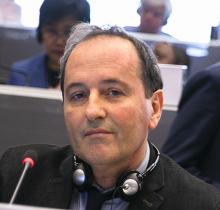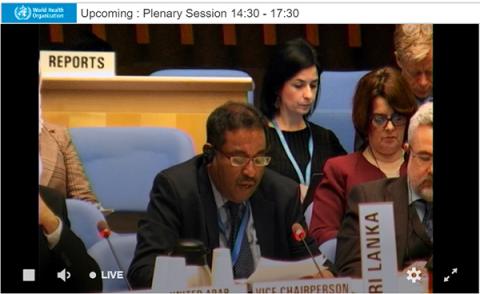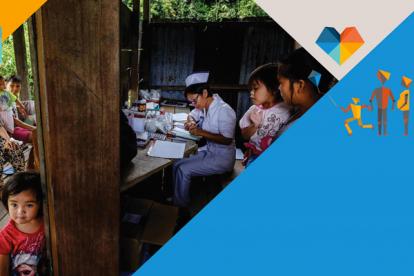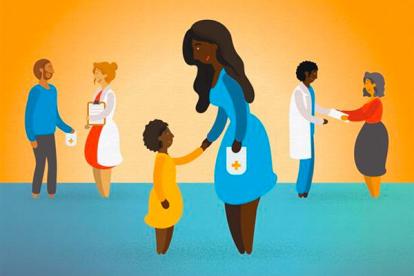Universal health coverage
World leaders commit to strengthening oral health
FDI welcomed the long overdue commitment to strengthen oral health in the United Nations (UN) Political Declaration on Universal Health Coverage (UHC), which was officially adopted by world leaders at the UN High-Level Meeting on UHC on September 23 in New York.
Momentum behind UHC has grown in recent years with endorsements from the World Health Assembly and United Nations General Assembly. It is now a pressing priority issue for many countries – in 2015, all UN Member States agreed to aim to achieve UHC by 2030, as part of the Sustainable Development Goals.
Target 3.8 for Sustainable Development Goal 3 (the health goal) aims to “achieve universal health coverage, including financial risk protection, access to quality essential healthcare services and access to safe, effective, quality and affordable essential medicines and vaccines for all.”
Oral health is one of the most neglected areas of global health, so this breakthrough commitment from world leaders is a key step in helping to make essential oral healthcare available, affordable, and accessible to all. FDI will work with its members to ensure the Declaration is converted into concrete, sustainable action at the national level.
Progress towards UHC
Despite some progress made towards achieving UHC, at least 400 million people still cannot obtain essential health services and 100 million people are forced into extreme poverty for health expenses each year.
Oral health and UHC
Oral health is essential to maintain a good quality of life. However, like many other health services, basic oral healthcare remains out of reach for millions of people. Oral diseases are increasingly common in low- and middle-income countries; worldwide, the oral disease burden is much higher among disadvantaged population groups. FDI supports the integration of basic oral healthcare into UHC to improve oral health outcomes and reduce inequalities in access to care.
UHC is far from a new concept; it is firmly based on the World Health Organization (WHO) 1948 Constitution declaring health a fundamental human right.
WHO defines UHC as ensuring “all people have access to [health] services and do not suffer financial hardship paying for them”. UHC encompasses the full spectrum of essential, quality health services, from health promotion to prevention, treatment, rehabilitation and palliative care.
What UHC does not mean
It is important to understand that UHC does not include or mean a number of things. According to WHO:
- UHC does not mean free coverage for all possible health interventions, regardless of the cost, as no country can provide all services free of charge on a sustainable basis;
- UHC is not just about health financing. It encompasses all components of the health system: health service delivery systems, the health workforce, health facilities and communications networks, health technologies, information systems, quality assurance mechanisms, and governance and legislation;
- UHC is not only about ensuring a minimum package of health services, but also about ensuring a progressive expansion of coverage of health services and financial protection as more resources become available;
- UHC is not only about individual treatment services, but also includes population-based services such as public health campaigns, adding fluoride to water, controlling mosquito breeding grounds, and so on;
- UHC is comprised of much more than just health: taking steps towards UHC means steps towards equity, development priorities, and social inclusion and cohesion.
UHC provides a unique opportunity to improve access to essential oral health services and address substantial out-of-pocket expenses associated with oral healthcare in many countries. The integration of essential oral health services into UHC will help improve health outcomes and reduce fundamental inequalities in access to care.





